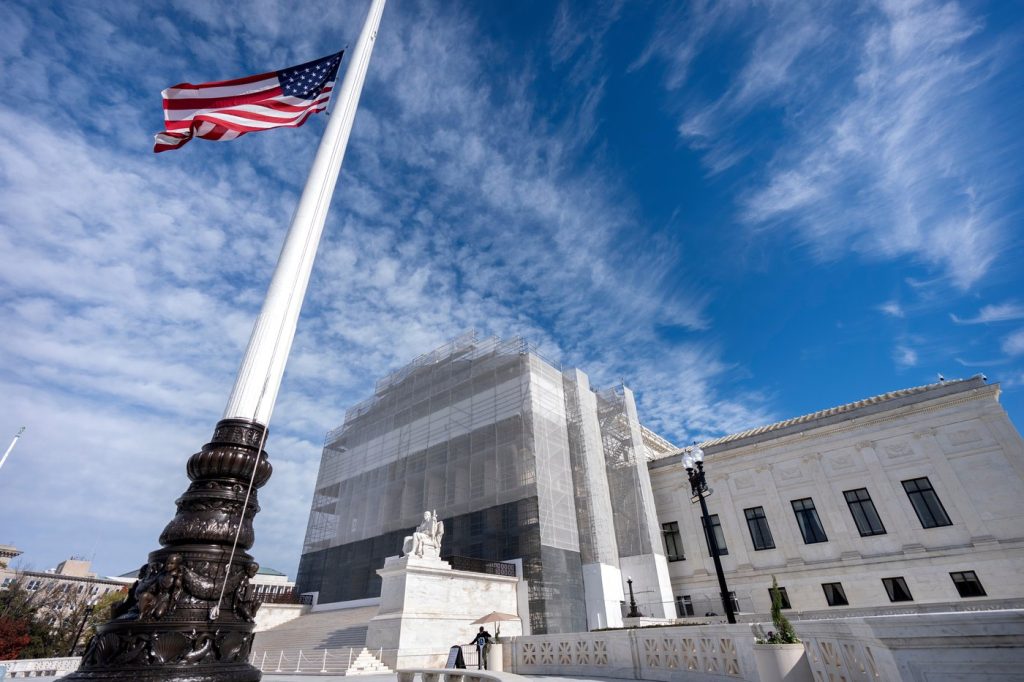On Thursday, the Supreme Court allowed President Donald Trump’s administration to enforce a controversial policy that blocks transgender and nonbinary individuals from selecting passport sex markers that align with their gender identity. This decision marks a notable victory for Trump, particularly on the court's emergency docket, permitting the enforcement of this policy while legal challenges are still in progress. The court's ruling puts a stop to a previous lower-court order that had allowed individuals to opt for male, female, or X sex markers on their passports, thus corresponding with their gender identity for new or renewed passports. The ruling was not unanimous, as the court's three liberal justices dissented.
The conservative-majority court contended that the policy does not constitute discrimination. In a brief and unsigned order, the justices stated, “Displaying passport holders’ sex at birth no more offends equal protection principles than displaying their country of birth.” They maintained that the government is asserting a historical fact without subjecting individuals to different treatment. In contrast, the three dissenting justices argued that the policy exposes transgender individuals to increased risks of violence, harassment, and discrimination. Justice Ketanji Brown Jackson voiced strong opposition, asserting that the ruling enables immediate harm without adequate justification and emphasized the negative implications for transgender individuals who rely on these identification documents.
Transgender and nonbinary individuals involved in the lawsuit expressed concerns regarding the potential dangers of carrying passports that do not accurately reflect their gender identity. Reports have emerged detailing instances of sexual assault and discrimination at airport security checks, highlighting the vulnerabilities faced by these individuals. Jon Davidson, senior counsel for the ACLU's LGBTQ & HIV Project, remarked that forcing transgender individuals to carry inaccurate identification increases the likelihood of harassment and violence, labeling the court's decision a heartbreaking setback for bodily autonomy and self-identity.
Historically, sex markers have appeared on U.S. passports since the 1970s, with policy changes beginning in the early 1990s that allowed alterations upon providing medical documentation. Under President Joe Biden, a significant policy change in 2021 removed the requirement for such documentation and allowed nonbinary individuals the option to choose an X gender marker. However, this recent Supreme Court decision was prompted by an executive order from Trump in January, which stated that the United States would acknowledge only two sexes, male and female, as determined by birth certificates and biological classification.
A prior lower court ruling had blocked the Trump administration's policy, after a lawsuit from transgender and nonbinary individuals who reported fear of submitting applications due to the policy's implications. The appeals court upheld that judge's order before the Solicitor General, D. John Sauer, sought intervention from the Supreme Court, asserting that the existing policies were inaccurate. Recent court rulings have often sided with government policies, including those restricting transgender individuals from military service and barring transition-related healthcare for transgender minors.
The Supreme Court's decision was met with approval from the White House, with a spokeswoman expressing that it constitutes a triumph of common sense and aligns with Trump's broader agenda to eliminate “woke gender ideology.” Attorney General Pam Bondi echoed this sentiment, reinforcing the belief in the existence of only two sexes and pledging continued defense of that perspective within the legal sphere.












